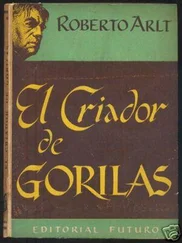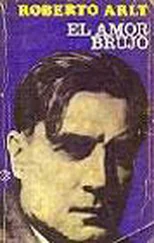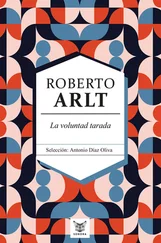The hatred that brewed in the woman’s breast always ended up by exploding.
Some insignificant motive was enough, any little nothing.
Suddenly, swollen by a dull fury, the woman would leave the counter and, with her slippers dragging on the tiles, wringing her hands underneath the scarf, with her lips set and her eyes wide open, would look for her husband.
I remember the particular scene of that day:
As was his custom, that morning Don Gaetano had pretended not to see her, even though he was only a step away from her. I saw the man bend his head towards a book and pretend to read the title.
When she stopped, the pale woman stayed stock-still. Only her lips trembled, like leaves.
Then she said in a voice that was a terrible monotone:
‘I was beautiful. What have you done to my life?’
The hair that hung over her forehead trembled as if in a breeze.
Don Gaetano shuddered.
With a despair that caused her throat to close up, she threw the following words at her husband, heavy words, words like gunpowder:
‘I raised you up… Who was your mother…? Just a bagazza who went around with all the men? What have you done with my life…?’
‘María, shut up!’ Don Gaetano replied in a cavernous voice.
‘Yes, who was it who fed you and clothed you…? Me, strunzo … I fed you.’ The woman’s hand lifted as if she wished to strike her husband’s cheek.
Don Gaetano retreated, trembling.
She said, with a bitterness that trembled on the edge of sobbing, heavy gunpowder-like sobbing:
‘What have you done to my life… pig? I was happy in my house like a poppy in a pot, and I didn’t need to marry you, strunzo …’
The woman’s lips moved convulsively, as if she were chewing on some sticky, terrible hatred.
I went out to chase the curious bystanders away from the front of the shop.
‘Leave them, Silvio,’ she ordered me in a shout. ‘Let them hear who this scoundrel really is.’ Her green eyes were wide, making it seem as if her face were drawing ever nearer, like an image painted on the background of a screen, and she continued speaking, ever more pale:
‘If I were a different person, if I got around more, then I’d have a better life… I’d be a long way away from a hog like you.’
She stopped talking and rested.
Now Don Gaetano was looking after a gentleman in an overcoat, with big gold spectacles riding on a narrow cold-reddened nose.
Aroused by his indifference, because the husband must have been used to these scenes and must have preferred to be insulted to losing his benefits, the woman called out:
‘Don’t listen to him, señor, don’t you see that he’s just a thief from Napoli?’
The old gentleman turned round in astonishment to look at this fury, and she continued:
‘He’ll ask you twenty pesos for a book that cost four.’ As Don Gaetano did not turn round, she screamed until her face filled with blood: ‘Yes, you’re a thief, a thief!’ And she spat out her spite, her disgust.
The old gentleman said, fixing his glasses more firmly on his nose:
‘I’ll come back some other day.’ And he left indignantly.
Then Doña María took a book and threw it suddenly at Don Gaetano’s head, and then another one, and another one.
Don Gaetano seemed to be drowning in rage. Suddenly he grasped at his neck, took the black tie and threw it at his wife’s face; then he stopped still for a moment as if he had been given a blow to the temple, and then he started running, he ran out into the street, his eyes sticking out of their sockets, and, stopping in the middle of the pavement, shaking his bare shaved head, waving like a madman to the passers-by, his arms held out, he shouted in a voice that rage had made unnatural:
‘Beast… beast… animal!’
With satisfaction, she turned to me:
‘You see what he’s like? Worthless… scum! I’m telling you, sometimes I feel like leaving him.’ Turning to the counter she crossed her arms, still sunk in abstractions, her cruel gaze fixed on the street.
Suddenly:
‘Silvio.’
‘Señora.’
‘How many days does he owe you for?’
‘Three including today, señora.’
‘Here you go.’ Passing me the money, she added: ‘Don’t trust him, he’s a con-artist… He cheated an Insurance Company; if I wanted, I could get him sent to jail.’
I went to the kitchen.
‘What do you think, Miguel?’
‘Hell, Don Silvio. What a life! Stinking God!’
And the old man, threatening heaven with his fist, sighed and then bent his head over the basin and carried on peeling potatoes.
‘But where do these explosions come from?’
‘I don’t know… they don’t have kids… he can’t perform…’
‘Miguel.’
‘Yes, señora.’
The strident voice ordered:
‘Don’t make any food; we’re not going to eat today. Anyone who doesn’t like it can move out.’
This was the coup de grâce. A few tears flowed down the ruined face of the starving old man.
A few moments went by.
‘Silvio.’
‘Señora.’
‘Here you go, here’s fifty centavos. You go and find something to eat round here.’ Wrapping her arms in the folds of the green scarf, she took up her normal wild pose. On her livid cheeks two tears flowed slowly down to the corners of her mouth.
Feeling moved, I murmured:
‘Señora…’
She looked at me, and without moving her mouth, smiling with a strangely convulsive smile, she said:
‘Run along, and be back at five.’
Taking advantage of my free afternoon I decided to go to see Señor Vicente Timoteo Souza, a man who dedicated himself to occult sciences and other theosophic studies, and to whom I had been recommended by a third party.
I rang the bell and stayed looking at the marble staircase, on which the red carpet held in place by bronze stair-rods soaked up the sun that came through the glass of the heavy iron door.
The porter, dressed in black, came down with perfect calm.
‘What do you want?’
‘Is Señor Souza in?’
‘Who are you?’
‘Astier.’
‘As…’
‘Yes, Astier. Silvio Astier.’
‘Wait here, I’ll go and see.’ After looking me over from head to toe he disappeared through the door to the receiving room, covered with long pale yellow curtains.
I waited impatiently, anxiously, knowing that the decision that this grand gentleman Vicente Timoteo Souza took could change the whole destiny of my unfortunate adolescence.
The heavy door opened again halfway, and the porter said to me solemnly:
‘Señor Souza says that you should return in half an hour.’
‘Thank you… thank you… goodbye.’ I went away, pale.
I went into a nearby milkbar, and sat down by the table and ordered a coffee from the waiter.
‘Indubitably,’ I thought, ‘if Señor Souza agrees to see me then he’ll give me the job he promised.
‘No,’ I continued, ‘there’s no reason to think badly of Souza… Think of all the reasons he could have given not to receive me, how busy he is…’
Oh, Señor Timoteo Souza!
I had been presented to him one winter morning by Demetrio the theosophist, who was trying to improve my situation.
Sitting in the hall around a twistingly carved table, Señor Souza, his close-shaven cheeks and his bright pupils behind his round glasses shining brightly, had led the conversation. I remember he had been wearing a velvet déshabillé with mother-of-pearl buttons and beaver cuffs, all elements that added to his role as rastaquouère , a person who could give himself the freedom to talk to some poor devil simply to amuse himself.
We were talking, and with reference to my possible psychological make-up, he said:
Читать дальше












